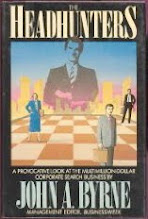In yesterday's snail mail came an extraordinary offer from a magazine I respect and admire--Inc., the journal for entrepreneurs. It was one of those subscription offers we all get from time to time. But this one offered the lowest price I have ever seen for a mainstream business magazine: $5 for a year's subscription or $10 for three full years. The latter offer provides 30 issues of the magazine for 33 cents a copy, less than the cost to mail the magazine. Add in the costs of reporting, writing, editing, design, art, printing and paper, and it's not hard to see that Inc. is losing quite a bit of money on every issue it sells. My guess is that the cost to produce a single issue of Inc. is closer to $1.50 to $1.75. So Inc., which is owned by Mansueto Ventures, my former employer at Fast Company, is willing to take a loss of well over a dollar an issue to get me as a subscriber. And this is for an exceptional magazine of very high quality, smart writing, and attractive design.
Why? Largely because it's doing what almost all magazines do: it's trying to maintain a circulation or rate base that is higher than it's natural demand. By keeping its rate base at its current level, it can charge advertisers a higher price than it otherwise could. Inc. is hardly alone in playing this game. Pretty much every U.S. magazine has the same strategy. If you're the circulation director of a publication, you have a simple choice: pay large direct mail costs to get new subscribers who really want the magazine, or lower your subscription costs to a point where you're pretty much making an offer that is hard to refuse. Although I have never paid for a subscription to Inc., I'm filling out a check for $10 right now. As a magazine junkie and a new entrepreneur, I simply cannot refuse this offer. Inc., you got me.
Donkey Show, the novel
-
My new novel, Donkey Show, is out in trade paperback. The digital version
will come next month, with the official launch.
The idea for the novel came ba...
3 years ago











